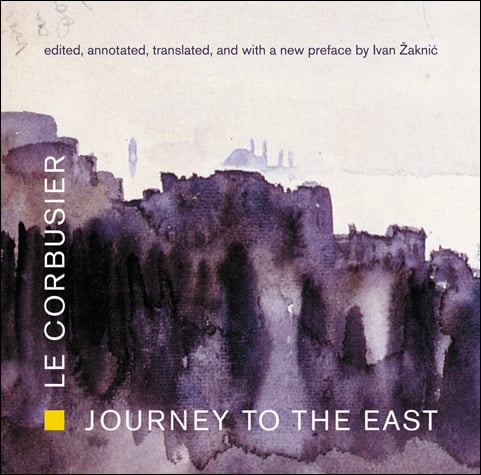
February 28, 2008
An Architect Abroad
For seven months in 1911, the 24-year-old Charles-Èdouard Jeanneret—later Le Corbusier—traveled through southern, central, and Eastern Europe, filling notebooks with his impressions and drawings. He considered it the most significant journey of his life. The vernacular architecture Jeanneret encountered along the way—cathedrals, mosques, peasant houses, the ruins of ancient Greece—cemented his decision to become an […]
For seven months in 1911, the 24-year-old Charles-Èdouard Jeanneret—later Le Corbusier—traveled through southern, central, and Eastern Europe, filling notebooks with his impressions and drawings. He considered it the most significant journey of his life. The vernacular architecture Jeanneret encountered along the way—cathedrals, mosques, peasant houses, the ruins of ancient Greece—cemented his decision to become an architect and profoundly influenced his later forms.
Last month the MIT Press reissued its 1987 edition of these notebooks, collected as Journey to the East, with a new preface by its translator and editor, Ivan Žaknić. So how do Corbu’s travel diaries hold up now, nearly a century after he penned them? Much of the time, the young Jeanneret sounds pretty much like any other twentysomething traveling around Europe with a journal in his pocket: enthusiastic, naive, self-consciously literary, and more than a little self-involved. But the accompanying sketches and watercolors (there are about 85 included here) are loose and lovely, and they show just how earnestly Jeanneret was absorbing architectural nuance and detail. The Parthenon, in particular, was a revelation to him. Žaknić writes: “There was, it seems, a pre-Parthenon Jeanneret and a post-Parthenon Le Corbusier.”
And it should be said that Jeanneret’s writing is not all bad. While it’s hard to imagine anyone sitting down and reading the diaries with much relish, it is fun to flip around and pick out the occasional gem, like this digression from one of his earliest entries:
I am young—an ephemeral sin—I am consequently prone to rash judgments. I admire eclecticism, but I’ll wait until I am white-haired before accepting it blindly. On the contrary, I open my eyes very wide, taking in all around me, my myopic eyes behind my glasses—these sorry spectacles that bestow upon me a doctoral air or the look of a clergyman. I am talking a lot of nonsense.





